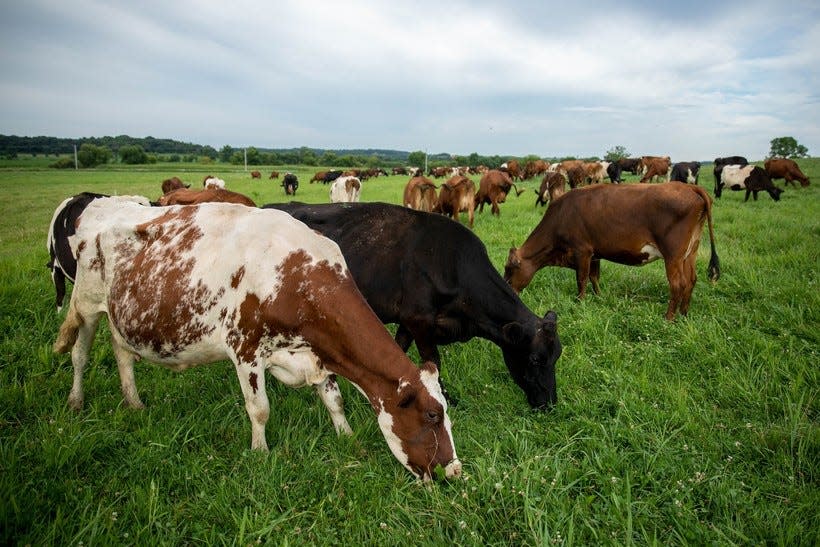Nan Kirlin: How craft beer may reduce methane from cows

Even though it is tough sometimes to find the “good” in the world, good things are happening; we just need to search for the positive news.
In the June 28 bulletin put out by the United States Department of Agriculture Research Service, there was an article highlighting work being accomplished at our very own Warren Wilson College, Asheville Sustainability Research, LLC of Asheville, NC and the Agricultural Research Service.
So, let’s start from facts that we can substantiate: methane, carbon dioxide, nitrous oxide and fluorinated gases are the top four greenhouse gases. Greenhouse gases trap sunlight and allow the Earth to become warmer. Carbon dioxide (79%) emissions are mainly from fossil fuel combustion, deforestation and cement production. Methane (11%) main sources are fossil fuel production, agriculture and landfills. Nitrous oxide originates from fertilizer applications, fossil fuels and biomass combustion and other industrial processes. Fluorinated gasses come from stationary refrigeration, air conditioners (car and building) and heat pumps.
The need to lessen greenhouse gases can come at all fronts, and it seems that worldwide, folks are looking at ways to reduce methane production.
We, here at the Gaston County Landfill collect the methane gas before in enters the atmosphere and convert it to fuel that runs generators that produce electricity.
Warren Wilson College, Asheville Sustainability Research and Agricultural Research Services have been working on the use of spent brewer’s yeast. The Asheville area is full of breweries, and once the brewer’s yeast has done its job in the production of beer, it is discarded.
This team has discovered that this yeast, when mixed into livestock feed, not only provides extra sources of protein and vitamins, may also cut down on the amount of methane released by said livestock.
The United States, Ireland, Norway and Australia and a few of the countries are actively investigating ways to reduce the methane coming from cows. Cattle are vital to the economy and the livelihood in many cultures, but as they eat grasses and hay, their digestive systems convert some of that into methane that they burp (more than the other option) gas.
Other researchers have found that the addition of algae can cut methane production considerably.
In countries that have ample supply of algae, especially a red alga, Asparagopsis, the addition of this nutrient causes a substantial reduction of gas. Well, if you are a country that has water as borders, this is a wonderful way to utilize a natural resource.
Some countries are considering farming and raising the algae, drying and pelletizing to use as a nutrient supplement, and this is happening in Norway.
But, for the folks in western Carolina, the team in Asheville has discovered some of the same positive results using spent brewer’s yeast! There had been some experimentation with red clover to achieve some of these results, but this will be more advantageous to both the breweries and to the cows.
A researcher in Lexington Kentucky, Michael Flythe along with Robert Bryant and Rhys Burns, Christopher Feilder-Cree, Denia Carlton and Langdon Marti have estimated that the brewing process generated 15 to 18 tons of spent brewer’s yeast per 2641 gallons of finished beer. That’s a lot of spent yeast!
The science behind this is that the yeast absorbs humolones and lupolones (compounds that provide flavor to beer); they also can be responsible to prevent the gut bacteria in cows from releasing methane. So, in essence, Saccharomyces cerevisiae, the name of the yeast, works with the hops and other ingredients to produce flavorful beer. The same leftover yeast can then be fed to cows and in their systems helps to tamp down the production of methane.
We may not have red algae in the mountains, but the team from Warren Wilson College is creative and working to solve whatever greenhouse gas problem they can.
Nan Kirlin is the recycling coordinator for Gaston County.

This article originally appeared on The Gaston Gazette: Opinion: How craft beer may reduce methane from cows

